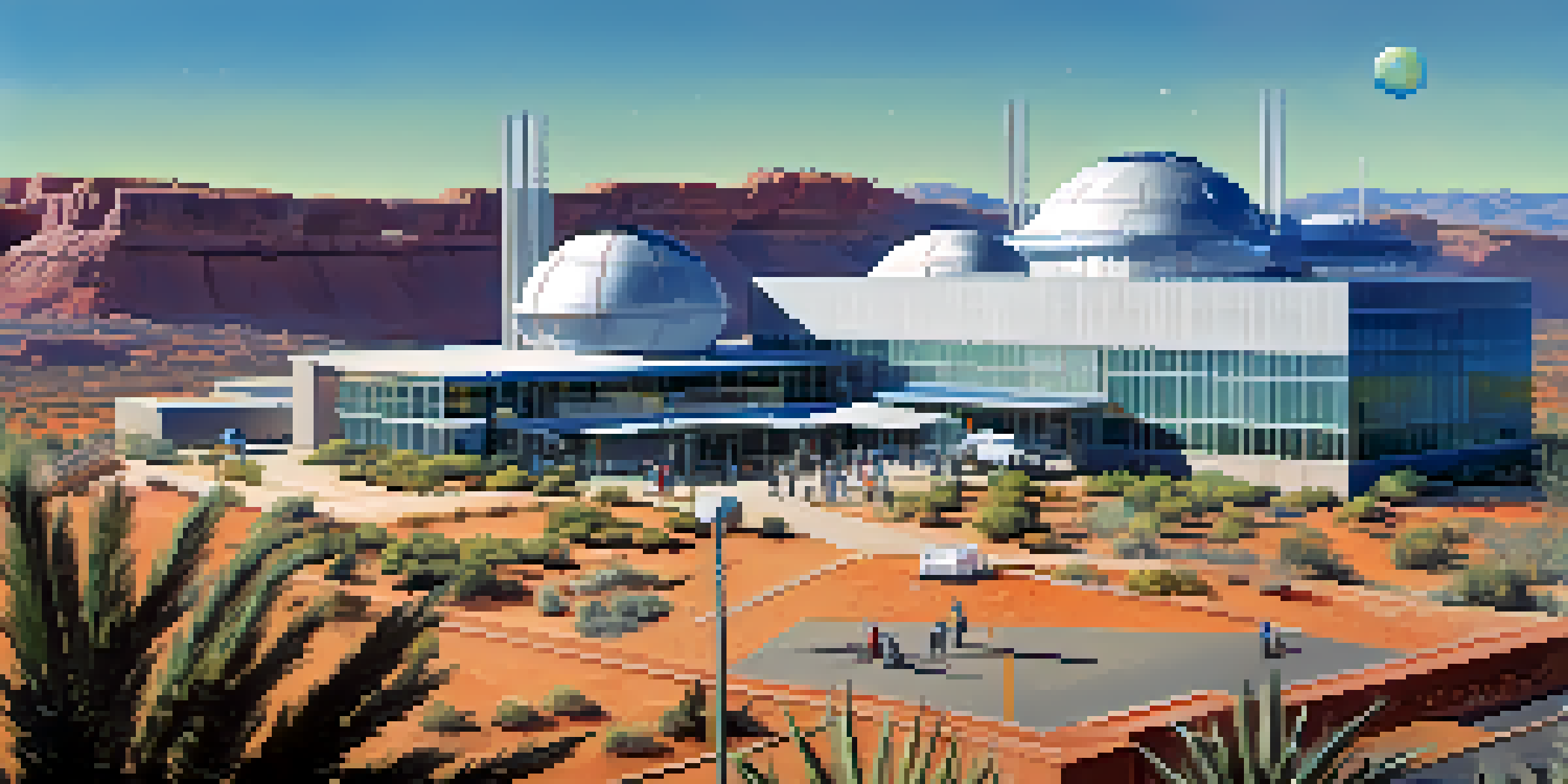Tucson's Contributions to Satellite Technology Advancements

Overview of Tucson's Satellite Technology Landscape
Tucson, Arizona, has emerged as a significant player in the satellite technology arena. With its unique blend of educational institutions and industry expertise, the city fosters innovation. Organizations like the University of Arizona and various private companies contribute to this dynamic environment. The collaboration between academia and industry is a driving force behind many advancements in satellite technology.
The University of Arizona's Pioneering Research
The University of Arizona is at the forefront of satellite research and development. Its Lunar and Planetary Laboratory is renowned for designing and building instruments for space missions. For instance, the university has contributed to NASA's Mars missions, enhancing our understanding of the Red Planet. This research not only advances science but also fuels local economic growth through technology transfer and job creation.
Tucson's Satellite Tech Ecosystem
Tucson's unique blend of educational institutions and industry expertise fosters significant innovation in satellite technology.
Local Companies Shaping Satellite Innovations
Several companies in Tucson are making waves in satellite technology. One notable example is Raytheon Missiles & Defense, which develops advanced satellite systems for national security. These companies often collaborate with local universities, creating a vibrant ecosystem of innovation. Their contributions range from satellite components to entire systems that support military and civilian applications.
The Importance of Government and Military Partnerships
Tucson's strategic location has made it a hub for government and military operations related to satellite technology. The presence of Davis-Monthan Air Force Base strengthens this connection, providing opportunities for collaboration. These partnerships ensure that Tucson remains at the cutting edge of defense-related satellite advancements. Such collaborations not only enhance national security but also provide significant funding to local businesses.
Key Players: UA and Local Companies
The University of Arizona and local companies like Raytheon Missiles & Defense play pivotal roles in advancing satellite research and development.
Impact on Space Exploration Missions
Tucson's contributions extend beyond Earth, playing a vital role in space exploration missions. Local researchers have developed technologies vital for missions to asteroids and other celestial bodies. Innovations in remote sensing and imaging systems have been pivotal for organizations like NASA and private space firms. This impact illustrates how Tucson is helping to push the boundaries of our understanding of the universe.
Community Engagement and Educational Initiatives
Community engagement is crucial in fostering interest in satellite technology among local youth. Educational initiatives, such as workshops and internships, connect students with industry experts. These programs are designed to inspire the next generation of engineers and scientists. By cultivating talent locally, Tucson ensures a sustainable future for its satellite technology sector.
Challenges and Future Growth
While facing funding and competition challenges, Tucson is well-positioned for future growth in satellite technology with emerging advancements like AI.
Challenges Facing the Satellite Technology Sector
Despite its successes, Tucson's satellite technology sector faces several challenges. Funding for research and development can be inconsistent, affecting project timelines. Additionally, competition from other regions vying for satellite innovation can be intense. Addressing these challenges is essential for maintaining Tucson's position as a leader in this field.
Future Prospects for Tucson's Satellite Contributions
Looking ahead, Tucson is poised for continued growth in satellite technology. The integration of artificial intelligence and machine learning into satellite systems presents exciting opportunities. As global demand for satellite services increases, Tucson is well-positioned to meet these needs. With ongoing collaboration between academia, industry, and government, the future of satellite technology in Tucson is bright.